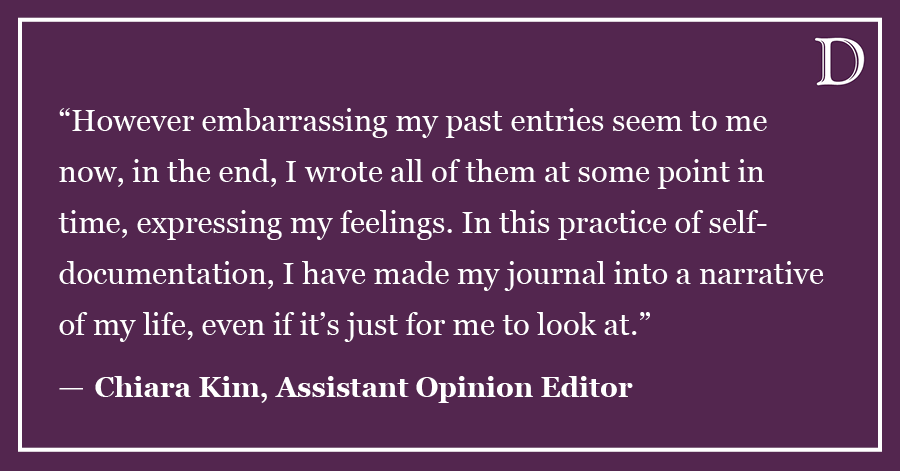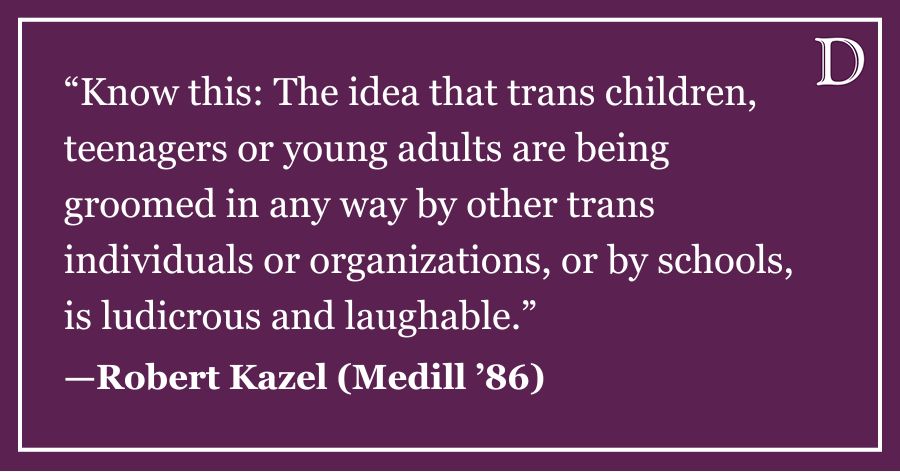One of my friends just went through a tough breakup. It’s understandable — and important — to feel down for a little while if you need to.
But after a certain point, you have to start to control your emotions and to think about other things. It’s important to realize that the relationship is part of your past, and though it was important because it helped shape who you are today, it isn’t the be-all, end-all of your existence. Focus on the future and it will help you reconcile your past.
As Charles Kettering once said, “My interest is in the future, because I am going to spend the rest of my life there.”
Don’t get me wrong, the past is important. Your past experiences shape your personality, future experiences and altogether make you who you are.
But if you find yourself wallowing in self-pity, we’ve got a problem.
Let me explain my use of the verb “wallow.” There is a difference between feeling your emotions as they come and holding onto them until they consume you. You can and will feel sad from time to time but if you keep yourself in a state of misery and are perpetually negative, there’s something you can do to fix it.
There are a million self-help books that refer to happiness as a state of mind. Last summer, I read Gretchen Rubin’s “The Happiness Project” about how she worked hard to be happy, and succeeded. It’s not easy to stay happy all the time — it’s something you work at.
This seems like a paradox in itself; isn’t happiness the absence of work? Something that you just feel when something good happens?
But let me ask you this: How do you know that something is good when it happens? You use your preconceived expectations to decide whether something turned out the way you wanted it to. You focus on the ideal outcome you formulated in the past, and if that doesn’t happen, you feel sad. That definition of happiness, feeling happy when something “good” happens, doesn’t seem very accurate.
You decide whether what happens is actually what you need to happen. It’s my belief that everything happens for a reason. If something unexpected happens — if you didn’t get that job you applied for or didn’t get into a group that you really wanted to be in — you were meant to find something else. You may come back to that job or that group later, but for now, you have time to focus on something else. And who knows, maybe that something else will be what you’ve been looking for all along. Change the way you think, and you can make your emotions what you want them to be.
Throughout her book, Rubin discusses small changes she makes in her life to make her feel happier. While these may seem boring and inconsequential to some, they really worked for her. Why? Because she sat down and thought about what made her feel good. It didn’t matter why they made her feel good, but it mattered that she figured out what those things were. They were small, like cleaning out her closet and throwing away what clothes she didn’t need, but they made a difference for her peace of mind. She made herself feel good by doing things that made her feel good, and so she took control of her emotions and her life.
You are the only person who can control how you feel. If you’re feeling perpetually down, or inadequate, or whatever, you are the only person who can change that, because your emotions are yours. Remind yourself how great you are, and trust yourself to be right.
You’re only this age, whatever number that is, once. Enjoy the moments you’re experiencing right now, find your passion and work to be happy. Make yourself feel the way you want to; you’re the only one who can.
Meera Patel is a McCormick junior. She can be reached at [email protected]. If you want to respond publicly to this column, send a Letter to the Editor to [email protected].














